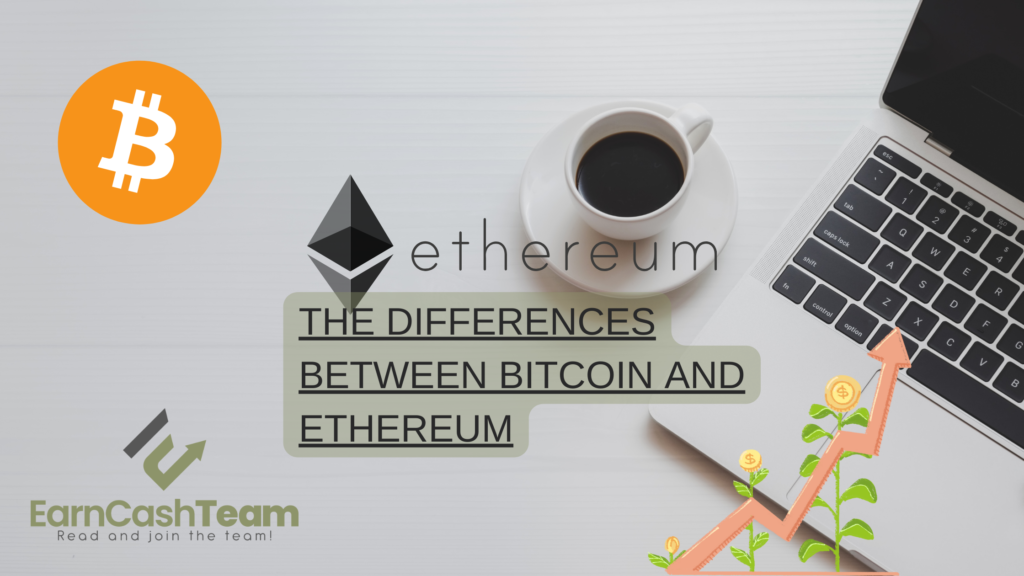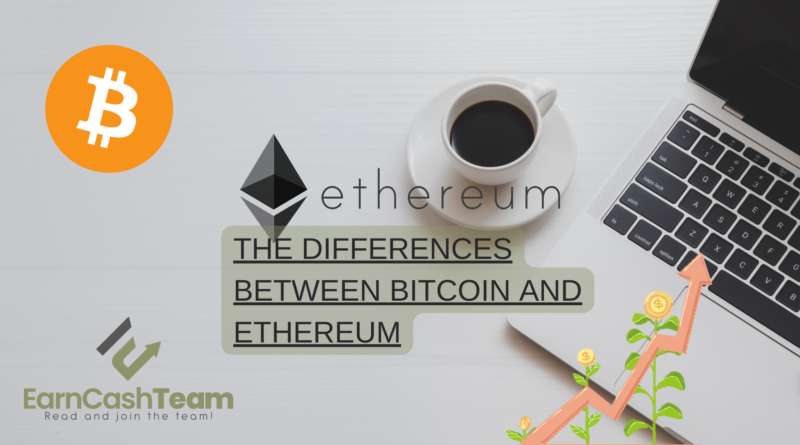The Differences Between Bitcoin and Ethereum
Cryptocurrencies have recently made headlines, as some are witnessing massive trading volumes and market capitalizations rivaling those of large corporations. Of all the available cryptocurrencies, Bitcoin and Ethereum remain two of the most prominent options; both utilize blockchain technology; however there are many subtle distinctions between them that differentiate their respective structures.
You can discover other tips about Ethereum with us!

Bitcoin, first released back in 2009, revolutionized how we view money by providing an alternative form of currency that wasn’t bound to a central authority or bank. Today it remains one of the best-known cryptocurrencies, widely seen as a store of value.
Bitcoin stands out from its rivals by employing blockchain technology for decentralized and transparent transaction processing. A blockchain is a distributed database that records all cryptocurrency transactions. Designed to prevent fraud or identity theft, as well as allow new cryptocurrencies to be created, blockchain provides fast and secure transaction processing.
One defining characteristic of Bitcoin is that its supply is limited to 21 million coins, helping promote scarcity and prevent inflation – this feature gives Bitcoin its value, similar to how gold holds value. Bitcoin can also be used as digital currency that can be purchased online or at certain retailers.
Bitcoin may offer many advantages, yet it does come with some limitations and drawbacks. Some significant drawbacks include its limited functionality, high volatility and lack of anonymity. Furthermore, its energy intensive nature contributes to climate change as well as operating cost increases while its lack of scalability and security issues remain ongoing concerns among some investors.
Ethereum offers more advanced features than Bitcoin. One key distinction is its support of programmable blockchains, expanding beyond digital currency into decentralized applications (dapps) that don’t answer to any particular company or government. Developers can build these dapps using Ethereum network as platforms for games or apps not subject to control by one entity or another.
Ethereum boasts a much faster transaction speed than Bitcoin; however, this comes at the price of gas fees charged to miners for each new transaction added to the blockchain.
Ethereum offers greater scalability than Bitcoin does, with its proof-of-work consensus mechanism only allowing 7 transactions per second compared to Ethereum’s more scalable system, which currently handles around 20 per second and works towards future upgrades that allow it to support even more.
Are You Searching for a Safe Haven or Looking to Invest for the Future? Both Bitcoin and Ethereum offer their own advantages and disadvantages; selecting one depends on your investment goals, risk tolerance and experience level. To gain more knowledge on these and other cryptocurrencies, take a look at Simplilearn’s Bitcoin and Ethereum Tutorial Videos.




